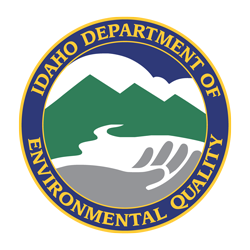Wastewater is water discharged from households and businesses containing pollutants, such as oil, dirt, human waste, or chemicals, that may damage water quality when introduced to a receiving water body. If untreated, wastewater may cause serious harm to the environment, threatens human health, and must be treated to remove these pollutants before it’s released back into the environment. DEQ regulates the planning, design, and operation of wastewater collection and treatment facilities in order to protect public health and the environment.
Any structure or facility that generates wastewater must have an approved wastewater treatment and disposal system. Industrial and municipal wastewater system designs must be reviewed and approved by DEQ prior to construction. Some systems also require a licensed operator to oversee the operation and maintenance of the system. DEQ’s Wastewater Program Engineering Bureau oversees wastewater treatment and collection systems, reviews plans and specifications, establishes standards for on-site wastewater systems (i.e., septic systems) and issues reuse permits for recycled water.
Our Idaho Pollutant Discharge Elimination System (IPDES) Bureau permits the discharge of pollutants into waters of the United States in Idaho. Permitted discharges include municipal, industrial, stormwater, pretreatment controls for certain discharges to publicly-owned treatment works (POTWs), and the sewage sludge (biosolids) management program. The IPDES Program is delegated to permit these discharges through the Clean Water Act (CWA) and the “Rules Regulating the Idaho Pollutant Discharge Elimination System Program” (IDAPA 58.01.25).
Staff Contact
Wastewater Compliance Bureau Chief
Wastewater Compliance and Enforcement Supervisor

